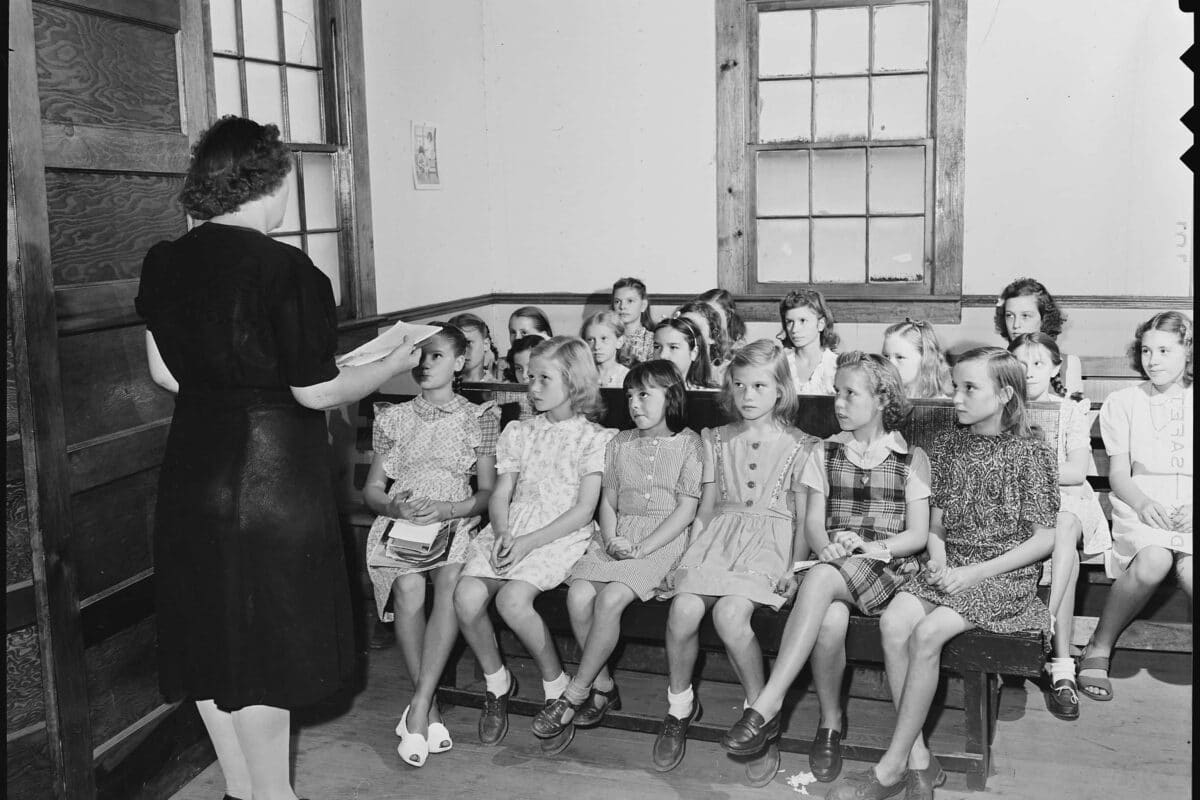I grew up in church and when I was in Sunday School in the 1980s, it was still quite the thing. My church even built extra rooms to accommodate children’s and youth groups. Churches across the country had Climbers, Explorers, Pathfinders and CYFA groups (we even had the T-shirts).
But now? Well, the likelihood is that youth groups have little to do with children’s work and will certainly never be called Sunday School. Culture has changed a lot, both outside and within church communities, and these changes have left us with a fragmented and slightly unsatisfactory structure.
Lately I’ve been wondering whether old-school Sunday School can still provide any guidance for how we work today. It is after all a great tradition, and maybe we shouldn’t get rid of everything, just because the whole thing is old.
Most Sunday Schools in Victorian times were set up for the purposes of education, as many young people couldn’t afford or didn’t have the time to attend school. It was education with a religious flavour and the Bible was studied and shared widely. Passages of the Bible were learnt by heart and scripture exams taken.
Is there still a place for such religious education today? I know that seems very unfashionable, but to have a knowledge of the Bible and the language of church is essential in faith development. Without this depth of knowledge, faith is in danger of remaining immature. Reflect on the parable of the sower: the seed grows, but because it has no roots, the plant dies when the sun scorches it. Knowledge about faith and the Bible can start to provide these roots.
Of course, knowledge on its own is no good, unless the young person does something with it and allows what they discover about Jesus to shape their faith in him. This is where we need to go further than the original Sunday Schools and enable young people (and children) to reflect on and wrestle with the Bible for themselves, and start owning their own faith.
Many Sunday Schools of old had lots of age group classes, from child through to early adulthood and most had curricula to follow, and this kind of joined up thinking is something that we might have lost over time. Many churches separate work out into children’s work (under 11) and youth work (over 11), but can we reach across those barriers to work more closely together? If we work together with children’s workers to coordinate approaches and create more continuity when children reach the ‘changeover’ age, then young people will get a better experience and grounding to their faith.
However, we need to make sure that we continue to foster an intergenerational element to our church family. It could be said that we have held onto strongly defined age groups too tightly, to the detriment of the church community and the faith development of children and young people. Those in age-based groups need to feel part of the wider church family, and that church family is strengthened and enriched by having under-18s as part of it. And families cannot be ignored either. Any work with young people needs to have family work at its heart (whatever the make-up of that family).
But what do you think? Can we learn anything from the Sunday School movement of old? Do you agree with these points? What else can we take forward from this tradition?
Alex Taylor manages the youth ministry blog. He recently went bowling with his youth group and came last. A long way last.
Image credit: Sunday school at the Baptist church which is not on company property and was built by the miners. Lejunior, Harlan… – NARA – 541342” by Russell Lee – U.S. National Archives and Records Administration. Licensed under Public Domain via Commons.
